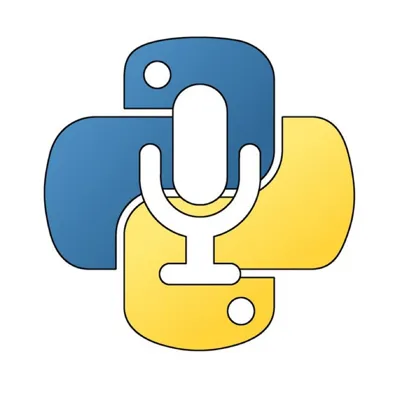🎧 Django-Fans aufgepasst!
Fühlt euch wie vor Ort bei der #DjangoConEurope2025 Europe mit unserer neuen Live-Episode aus Dublin. Talks, Community & Open-Source-Diskussionen mit Django Fellow @sarahboyce und natürlich @shezi:, @oryon_dominik und @jochen:
https://python-podcast.de/show/live-von-der-djangocon-europe-2025-in-dublin-tag-1/
#Python #Django
The emphasis here is mine but @nedbat nails it. 💯 Most of us just want to know how to package our Python code.
> But I frequently see questions from people who have written some Python code, and would like to get it packaged. They have a goal in mind, and it is not to learn about competing tools, intricate standards, or historical artifacts. They are fundamentally uninterested in the mechanics of packaging. **They just want to get their code packaged.**
https://nedbatchelder.com/blog/202402/one_way_to_package_python_code_right_now.html
It's frustrating to get engagement for Hot Takes About AI and then for things like this release which take weeks or months of slow and careful work at the heart of my expertise, see very little response. I realize that even Python programmers will look at this and think "oof, looks like a pretty big cognitive lift to even understand, let alone evaluate" and … you're not wrong. So I understand this is the nature of the beast; not sure what to say except "please clap" https://github.com/glyph/fritter
The Django apps I actually use (rough cut): https://micro.webology.dev/2024/02/04/the-django-apps.html
Just in case, here’s your periodic reminder that django-zen-queries IS the 🔨 you were looking for.
I was on the Software Engineering Daily podcast (again, first time back in 2018), so if you are software- or engineering-inclined, and want to hear more about that side of Mastodon, you can have a listen:
https://softwareengineeringdaily.com/2024/01/31/mastodon-with-eugen-rochko/
Very excited to announce that inspired by @jonhoo I'll be streaming some of my #pyo3 development time on Fridays!
My first stream will be tomorrow morning 10am GMT. We're busy completing an API "rewrite" for PyO3 0.21, and I've got a nice proc-macro puzzle that will be fun to solve on stream.
Please do join, whether you want to hang out, ask questions, or correct my code...
Subscribe to https://www.youtube.com/@davidhewittdev to get a reminder notification.
Boosts appreciated 🙏
'Harrison Handbook [of Practical Logic and Automated Reasoning] in Python pt 1' by @sandmouth
https://www.philipzucker.com/harrison-handbook-in-python-pt-i/
Neue Episode: @deadparrot, @shezi, Dominik und @jochen unterhalten sich über Typescript und Typisierung: https://python-podcast.de/show/typescript-und-typisierung/
It's here 🥳 my first Django video showcasing what's new in Django 5.0
https://youtu.be/lPl5Q5gv9G8?feature=shared
I'm very new to this so open to any feedback ❤️
I really want to showcase the #Django community as much as I can 🫂
edarchimbaud / awesome-systematic-trading
A curated list of awesome libraries, packages, strategies, books, blogs, tutorials for systematic trading.
Django 5.0 is out! 🥳 https://www.djangoproject.com/weblog/2023/dec/04/django-50-released/ #django
The Developer in Residence team is being expanded with Core Devs Petr Viktorin and Serhiy Storchaka. Congrats to both of them. This is great news for Python!
Neue Episode! Domink und @jochen unterhalten sich mit Florian über PyTest! #Python https://python-podcast.de/show/pytest/
Hey friends! 💖 I've been teaching Python and Django for a decade or more. Now I'm offering mentorship/tutoring by the hour. If you need help learning something, or know someone who does, I'd love to be part of your learning journey.
https://thekennethlove.com/mentoring/
Thanks for looking and your sharing is very appreciated <3 ✨
Takahē 0.10 is finally released! This is mostly performance and stability updates, but there's plenty of bugfixes to federation and the client app API as well.
https://monaspace.githubnext.com
I have been working on this for the last 2-plus years alongside the terrific folks from Lettermatic type foundry led by @rileycran. All code is letters on a grid. We can make that code more expressive, and layer more meaning on to code.
This weekend I landed a CPython PR that I'm very happy about (with the help of @ambv and Dennis Sweeney):
I switched the storage of all the names of Unicode code points in the unicodedata modules to using a different data structure, a "directed acyclic word graph". This makes the compiled module 440 KiB smaller. I did the same thing in PyPy a year ago, quite happy that it now made it to CPython too.
Look, it's Episode 2 of the http://core.py podcast! 🧙🏻🎃
This time around, we've read PEP 703 so you don't have to! Listen what it really means for the GIL to be removed, why it's not free lunch, and what internal changes it requires.
https://podcasters.spotify.com/pod/show/corepy/episodes/Episode-2---PEP-703-Removing-the-GIL-e2b8egi
@Cs137 @neingeist Glaube der @shezi hat ein eigenes gitlab, aber ich ( @jochen ) habe eh schon mehr Kram, als ich maintainen kann. Also was ich an den github issues tatsächlich nicht so toll finde, ist, dass die nicht selbst Teil des Repositories sind, d.h. sollte man irgendwann mal gezwungen sein, umzuziehen, ist das alles weg.
@neingeist Hehe, klingt gut 😃. Ja, ist alles open source hier. Auch das Podcast-Hosting-Dingsi ist selbstgedengelt (ob das so gut ist, weiß ich aber nicht - wäre mir mit Wordpress für einen Pythonpodcast aber etwas ehrlos vorgekommen..)
@neingeist Es behauptet aber, es hätte einen 🧐: https://pip.pypa.io/en/stable/topics/dependency-resolution/ - glaube aber, es gibt erst einen richtigen ab 20.3 oder so 😄.
Related is @justin's great "Homebrew Python Is Not For You" (though `pyenv` 😉, if not python.org)
https://justinmayer.com/posts/homebrew-python-is-not-for-you/
@neingeist Klar, wenn man sich eh damit auskennt, spricht natürlich nichts dagegen. Ich möchte das auch nicht überall anders haben und bei mir ist es da dann eben eher ansible. Wenn man das eher low-level macht, hat man die Schmerzen beim Aufsetzen, bei hohem Abstraktions/Automatisierungslevel dann beim Wechsel auf etwas anderes, weil der lock-in dann härter zuschlägt. Habe da noch einen schönen Artikel zu gelesen:
@neingeist pip hat keine solver? Hatte immer mal wieder Inkompatibilitäten zwischen poetry und pip.. glaube pip-tools benutzt auch den pip-solver?
@neingeist Klingt ja auch nicht verkehrt. Was nbdev da macht ist eigentlich nur die ganzen Metadaten (version, description, …) in Python zusammenzusuchen, damit man das immer nur an einer Stelle pflegen muss.



